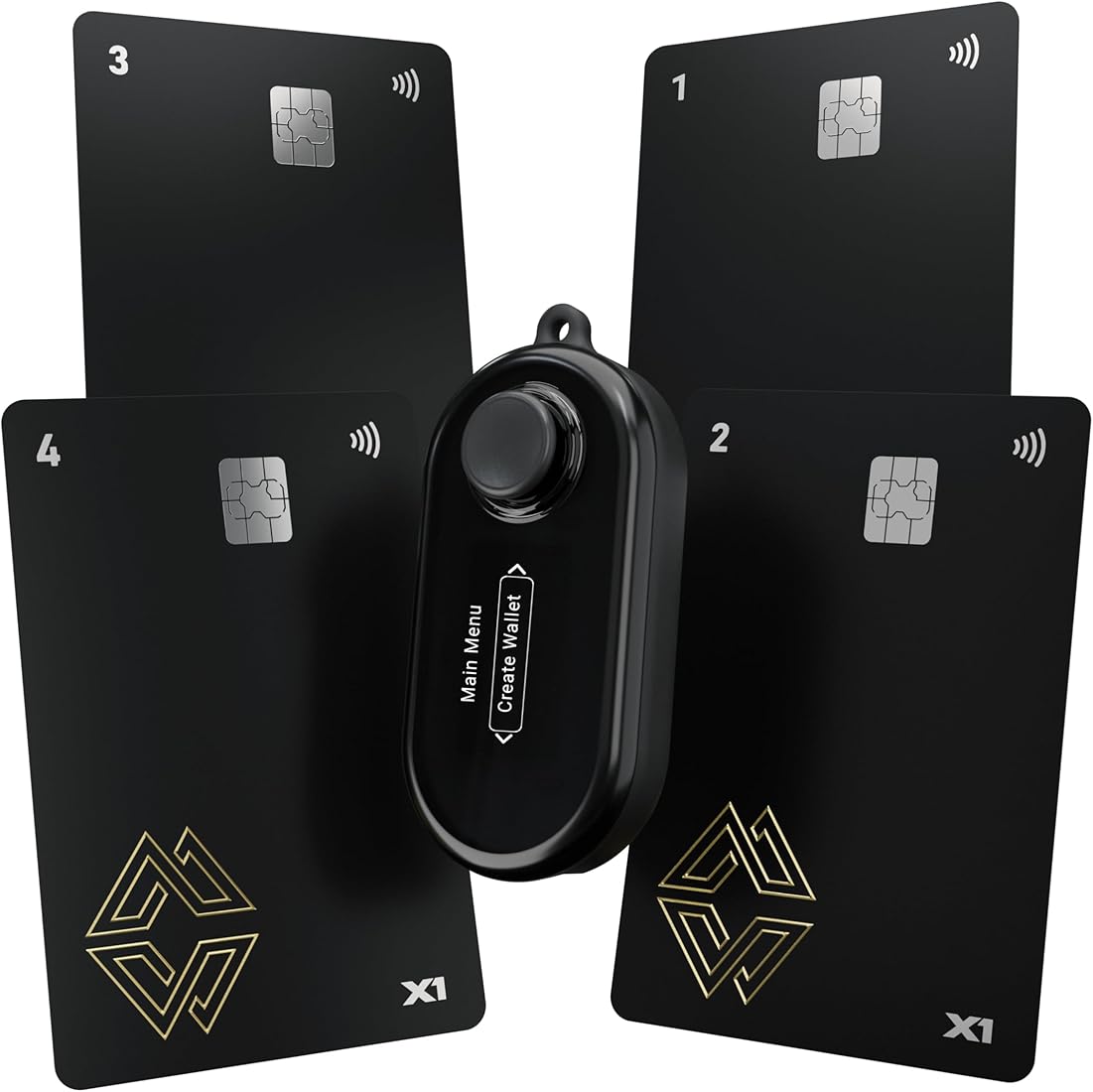Introduction
Bitcoin, the world’s first cryptocurrency, has seen enormous growth in popularity and value. As more people invest in Bitcoin, the need for secure storage becomes paramount. Bitcoin wallets enable users to store, send, and receive Bitcoin while protecting it from unauthorized access. With various wallet options available, choosing the right one can be a bit overwhelming. Here, we’ll break down the best Bitcoin wallets for secure storage and highlight key considerations to help you make the best choice.
Types of Bitcoin Wallets
Understanding the different types of wallets is the first step to selecting the one that fits your needs.
Software Wallets
Software wallets are digital wallets that you can install on your desktop, mobile device, or access via the web. They’re generally easy to set up and offer flexibility.
- Desktop Wallets: Desktop wallets are applications you can download onto your computer. Examples include Electrum and Exodus, known for their balance between security and accessibility.
- Mobile Wallets: Mobile wallets, like Mycelium, allow you to manage Bitcoin on the go, making them ideal for frequent transactions.
- Web Wallets: These wallets operate online, allowing access from any device with internet access. However, they can be less secure due to potential cyber threats.
Hardware Wallets
Hardware wallets are physical devices that securely store Bitcoin offline. Known as cold storage, this type of wallet is ideal for long-term holding and provides an additional layer of security by keeping private keys offline.
Paper Wallets
Paper wallets are simply pieces of paper that contain your private and public keys. They’re not recommended for beginners due to the complexities involved in managing them but can be effective for long-term storage.
Custodial vs. Non-Custodial Wallets
Custodial wallets are managed by a third party, often a cryptocurrency exchange, while non-custodial wallets allow you full control over your private keys. Each has its advantages depending on your security needs and experience level.
Top Factors to Consider When Choosing a Bitcoin Wallet
1. Security
Security is a top priority for Bitcoin storage. Look for wallets with strong encryption, two-factor authentication, and backup features.
2. Accessibility
Depending on your usage habits, you may prefer a wallet that’s easily accessible, like a mobile wallet, or a hardware wallet if you plan to hold Bitcoin long-term.
3. Backup and Recovery Options
Ensure the wallet offers a backup and recovery option in case you lose access to your wallet.
4. Fees
Be aware of any fees associated with the wallet, as they can vary depending on the type of wallet and the frequency of transactions.
Best Software Wallets for Bitcoin Storage
Electrum
Electrum is one of the oldest and most trusted Bitcoin wallets. Known for its speed, simplicity, and security, Electrum offers two-factor authentication and multi-signature support.
Exodus
Exodus provides a user-friendly interface and supports various cryptocurrencies. It includes a built-in exchange feature and offers an aesthetically pleasing design.
Mycelium
Mycelium is a mobile wallet tailored for more experienced users. It’s compatible with several hardware wallets and allows you to maintain control over your private keys.
Best Hardware Wallets for Bitcoin Storage
Ledger Nano S Plus
Ledger is a trusted name in hardware wallets, offering robust security and support for multiple cryptocurrencies. The Nano S Plus is an affordable option with excellent security features.
Trezor Model T
Trezor is another leading brand in hardware wallets, and the Model T offers enhanced security with a touchscreen for easier interaction.
Coldcard
Coldcard is a highly secure Bitcoin wallet designed exclusively for Bitcoin. Its focus on security makes it popular among experienced Bitcoin users.
Paper Wallets for Cold Storage
How Paper Wallets Work
Paper wallets involve printing your private and public keys on a piece of paper. They offer offline storage, which makes them immune to cyber-attacks but are vulnerable to physical loss or damage.
Pros and Cons of Paper Wallets
Paper wallets are cheap and completely offline, but they require careful handling and storage, making them less practical for everyday use.
Understanding Custodial vs. Non-Custodial Wallets
- Advantages of Custodial Wallets: Custodial wallets are easy to use and offer added convenience, especially for beginners.
- Advantages of Non-Custodial Wallets: Non-custodial wallets give you complete control over your private keys, which enhances security.
Securing Your Bitcoin Wallet
Implementing security measures is essential for keeping your Bitcoin safe. Here are some ways to enhance security:
- Two-Factor Authentication: Adding two-factor authentication (2FA) provides an extra layer of protection.
- Using Strong Passwords: Strong, unique passwords are critical for protecting your wallet.
- Regular Software Updates: Keeping your wallet software up-to-date is essential for defending against vulnerabilities.
Best Practices for Storing Large Amounts of Bitcoin
If you’re holding a substantial amount of Bitcoin, consider these tips:
- Cold Storage Solutions: Cold storage, like hardware wallets, is best for large holdings.
- Diversifying Wallets for Security: Using multiple wallets reduces the risk of losing access to all your funds in case of theft or loss.
Tips for Beginners Using Bitcoin Wallets
Starting with Bitcoin wallets can be overwhelming. Here’s some advice:
- Avoid Common Mistakes: Learn about common mistakes, like losing private keys or failing to back up your wallet.
- Resources for Learning About Bitcoin Wallets: Explore tutorials, community forums, and trusted resources for deeper understanding.
Pros and Cons of Each Wallet Type
Each wallet type has its unique pros and cons. Let’s summarize:
- Software Wallets: User-friendly but may lack strong security.
- Hardware Wallets: Highly secure but less convenient for frequent transactions.
- Paper Wallets: Secure but can be difficult to manage and prone to physical damage.
How to Set Up a Bitcoin Wallet
Steps for Software Wallet Setup
- Download the wallet app.
- Follow the installation instructions.
- Back up your recovery seed.
Steps for Hardware Wallet Setup
- Purchase a hardware wallet from a trusted source.
- Follow the manufacturer’s setup instructions.
- Store your recovery seed in a safe location.
Conclusion
Choosing the right Bitcoin wallet comes down to understanding your needs, balancing security and convenience, and implementing essential security practices. Whether you’re new to Bitcoin or a seasoned investor, selecting a reliable wallet is crucial for secure Bitcoin storage.
FAQs
1. What is the safest way to store Bitcoin?
The safest way is using a hardware wallet or paper wallet, which keeps Bitcoin offline.
2. Can I use multiple Bitcoin wallets?
Yes, using multiple wallets can help diversify risk and increase security.
3. Are software wallets safe?
Software wallets are generally safe, but they’re more vulnerable to online attacks compared to hardware wallets.
4. What happens if I lose my hardware wallet?
If you have backed up your recovery seed, you can restore your funds on another wallet.
5. Can I store other cryptocurrencies in a Bitcoin wallet?
Some wallets support multiple cryptocurrencies, but it depends on the wallet type. Check compatibility before storing various assets.


